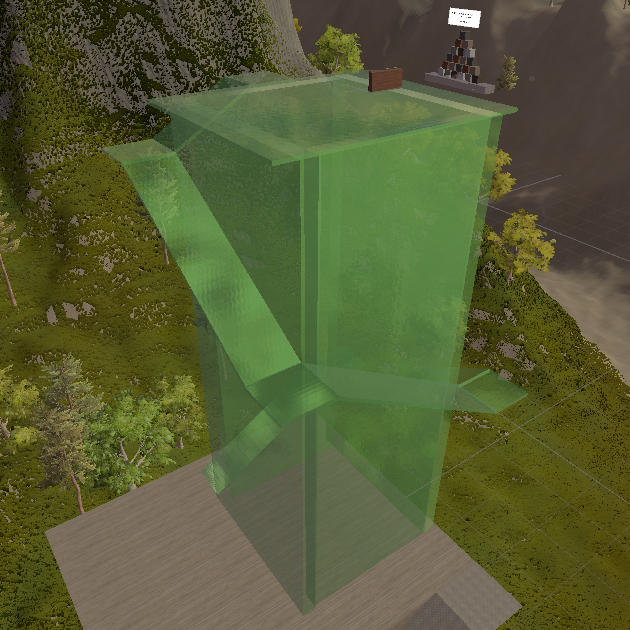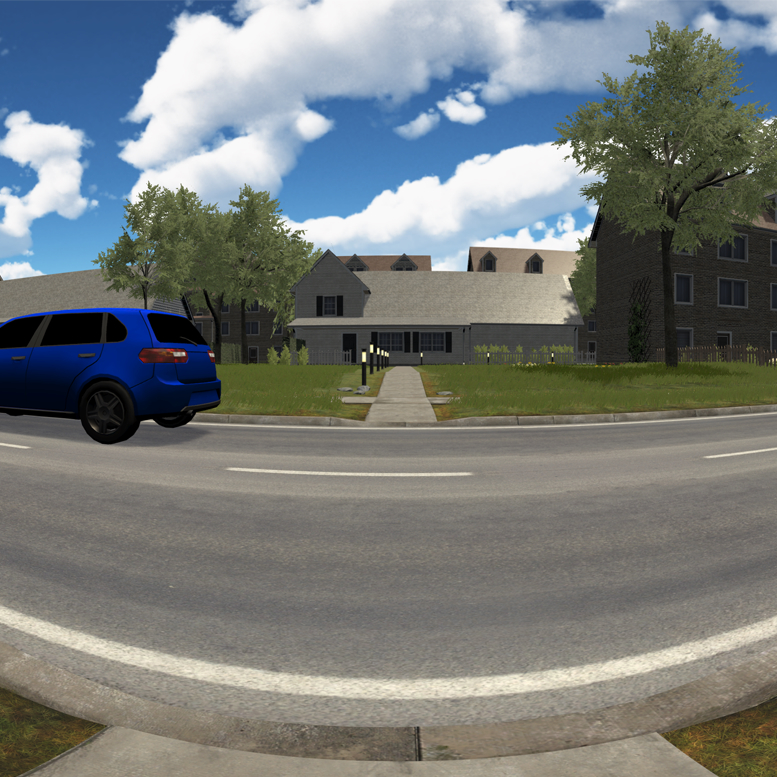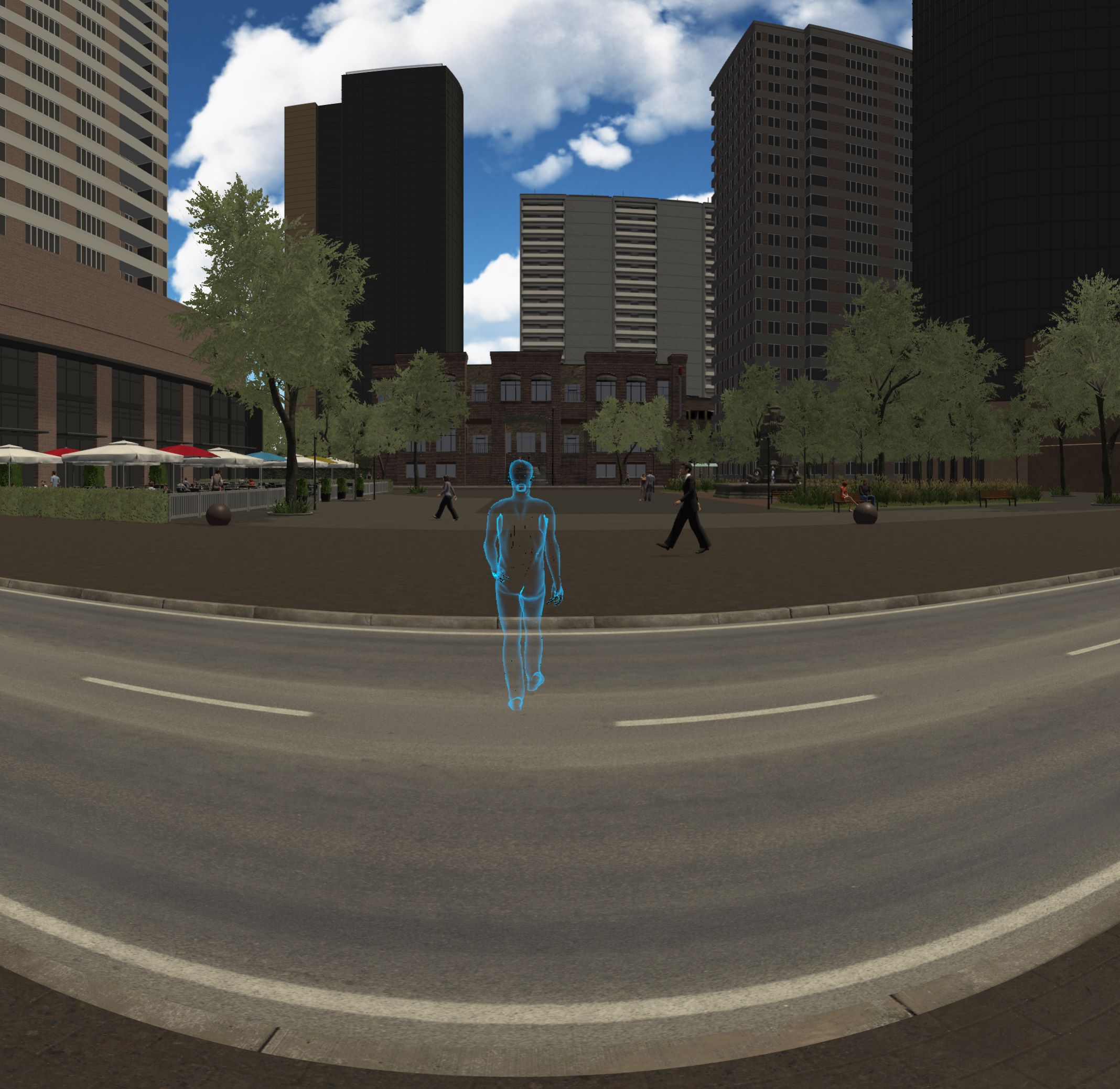 | Sebastian Wagner, Kay Illner, Matthias Weber, Bernhard Preim, Patrick Saalfeld VR Acrophobia Treatment - Development of Customizable Acrophobia Inducing Scenarios Inproceedings Proc. of Eurographics Workshop on Visual Computing for Biology and Medicine (EG VCBM), pp. 49–53, 2020. BibTeX | Links: @inproceedings{Wagner_2020_VCBM,
title = {VR Acrophobia Treatment - Development of Customizable Acrophobia Inducing Scenarios},
author = {Sebastian Wagner and Kay Illner and Matthias Weber and Bernhard Preim and Patrick Saalfeld},
url = {https://www.vismd.de/wp-content/uploads/legacy/wagner_2020_vcbm.pdf, PDF Download
https://www.youtube.com/watch?v=wr5fyb_mhbY, YouTube},
year = {2020},
date = {2020-01-01},
booktitle = {Proc. of Eurographics Workshop on Visual Computing for Biology and Medicine (EG VCBM)},
pages = {49--53},
keywords = {},
pubstate = {published},
tppubtype = {inproceedings}
}
|
 | Sebastian Wagner, Fabian Joeres, Mareike Gabele, Christian Hansen, Bernhard Preim, Patrick Saalfeld Difficulty Factors for VR Cognitive Rehabilitation Training – Crossing a Virtual Road Journal Article Computers & Graphics, 83 , pp. 11–22, 2019, ISSN: 0097-8493. Abstract | BibTeX | Links: @article{wagner_2019_cg,
title = {Difficulty Factors for VR Cognitive Rehabilitation Training – Crossing a Virtual Road},
author = {Sebastian Wagner and Fabian Joeres and Mareike Gabele and Christian Hansen and Bernhard Preim and Patrick Saalfeld},
url = {http://www.sciencedirect.com/science/article/pii/S0097849319301037
https://www.youtube.com/watch?v=PZK_MMKcNOw, YouTube},
doi = {https://doi.org/10.1016/j.cag.2019.06.009},
issn = {0097-8493},
year = {2019},
date = {2019-01-01},
journal = {Computers & Graphics},
volume = {83},
pages = {11--22},
abstract = {Patients with cognitive or visual impairments have problems in dealing with complex situations. During the rehabilitation process, it is important to confront the patient with (everyday) tasks that have increasing degrees of difficulty to improve their performance. Immersive virtual reality training offers the potential to create a better transfer to daily life than non-immersive computer training. In cooperation with two neuropsychologists, an immersive virtual environment (VE) was developed in which cognitive training in the form of safe road crossing decisions can be performed. We present the experimental exploration and evaluation of difficulty factors within such a VR-based cognitive rehabilitation program. Four difficulty factors were identified and compared (number of relevant traffic lanes, speed of vehicles, distance between vehicles, and number of vehicles). The combination of these difficulty factors resulted in 36 training scenarios. The impact of the factors on participant performance and subjective perception of scenario difficulty were evaluated with 60 healthy participants to estimate the impact of the four factors to a situation’s difficulty level. For the factors Relevant Lanes and Traffic Speed a clear influence on the perceived task difficulty could be determined. No clear influence could be found for the Gap Size. The Number of Vehicles had almost no effect on the perceived task difficulty. Finally, we asked two experienced neuropsychologists about the applicability of our developed system to patients, and they stated that the system is ready for a study on patients.},
keywords = {},
pubstate = {published},
tppubtype = {article}
}
Patients with cognitive or visual impairments have problems in dealing with complex situations. During the rehabilitation process, it is important to confront the patient with (everyday) tasks that have increasing degrees of difficulty to improve their performance. Immersive virtual reality training offers the potential to create a better transfer to daily life than non-immersive computer training. In cooperation with two neuropsychologists, an immersive virtual environment (VE) was developed in which cognitive training in the form of safe road crossing decisions can be performed. We present the experimental exploration and evaluation of difficulty factors within such a VR-based cognitive rehabilitation program. Four difficulty factors were identified and compared (number of relevant traffic lanes, speed of vehicles, distance between vehicles, and number of vehicles). The combination of these difficulty factors resulted in 36 training scenarios. The impact of the factors on participant performance and subjective perception of scenario difficulty were evaluated with 60 healthy participants to estimate the impact of the four factors to a situation’s difficulty level. For the factors Relevant Lanes and Traffic Speed a clear influence on the perceived task difficulty could be determined. No clear influence could be found for the Gap Size. The Number of Vehicles had almost no effect on the perceived task difficulty. Finally, we asked two experienced neuropsychologists about the applicability of our developed system to patients, and they stated that the system is ready for a study on patients. |
 | Sebastian Wagner, Julia Belger, Bernhard Preim, Patrick Saalfeld Crossing iVRoad: A VR application for detecting unilateral visuospatial neglect in postroke patients Inproceedings International Conference on Virtual Rehabilitation, 2019. BibTeX @inproceedings{Wagner_2019_ICVR,
title = {Crossing iVRoad: A VR application for detecting unilateral visuospatial neglect in postroke patients},
author = {Sebastian Wagner and Julia Belger and Bernhard Preim and Patrick Saalfeld},
year = {2019},
date = {2019-01-01},
booktitle = {International Conference on Virtual Rehabilitation},
keywords = {},
pubstate = {published},
tppubtype = {inproceedings}
}
|
 | Karina Arrambide, Mareike Gabele, Lisa Freiman Cormier, Sebastian Wagner, Rina R Wehbe, Christian Hansen, Lennart Nacke The Development of "Orbit": The Collaborative BCI Game for Children with AD(H)D Inproceedings Proceedings of the 2019 Annual Symposium on Computer-Human Interaction in Play (CHI PLAY), 2019. BibTeX @inproceedings{Arrambide_2019_CHIPLAY,
title = {The Development of "Orbit": The Collaborative BCI Game for Children with AD(H)D},
author = {Karina Arrambide and Mareike Gabele and Lisa Freiman Cormier and Sebastian Wagner and Rina R Wehbe and Christian Hansen and Lennart Nacke},
year = {2019},
date = {2019-01-01},
booktitle = {Proceedings of the 2019 Annual Symposium on Computer-Human Interaction in Play (CHI PLAY)},
keywords = {},
pubstate = {published},
tppubtype = {inproceedings}
}
|




